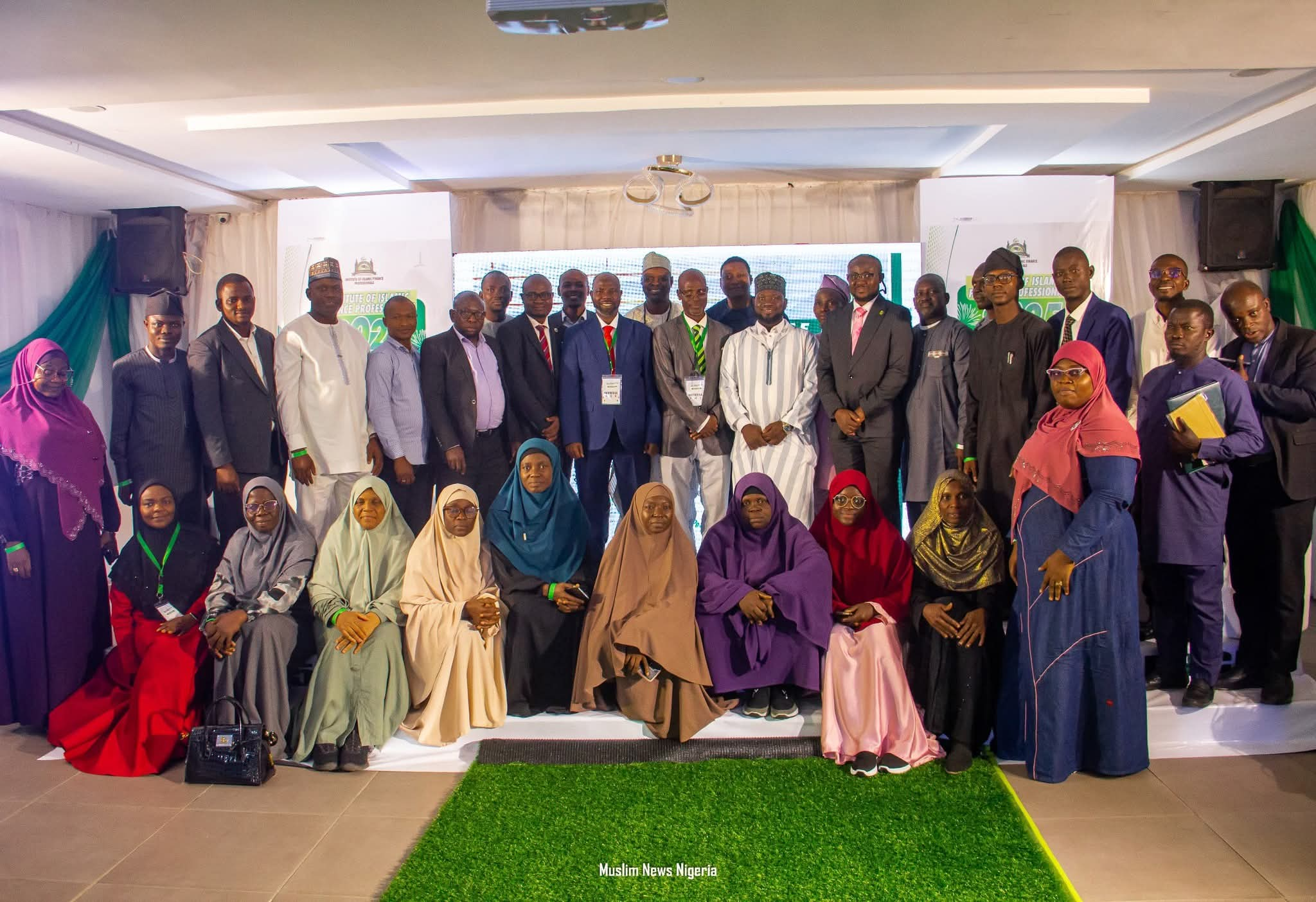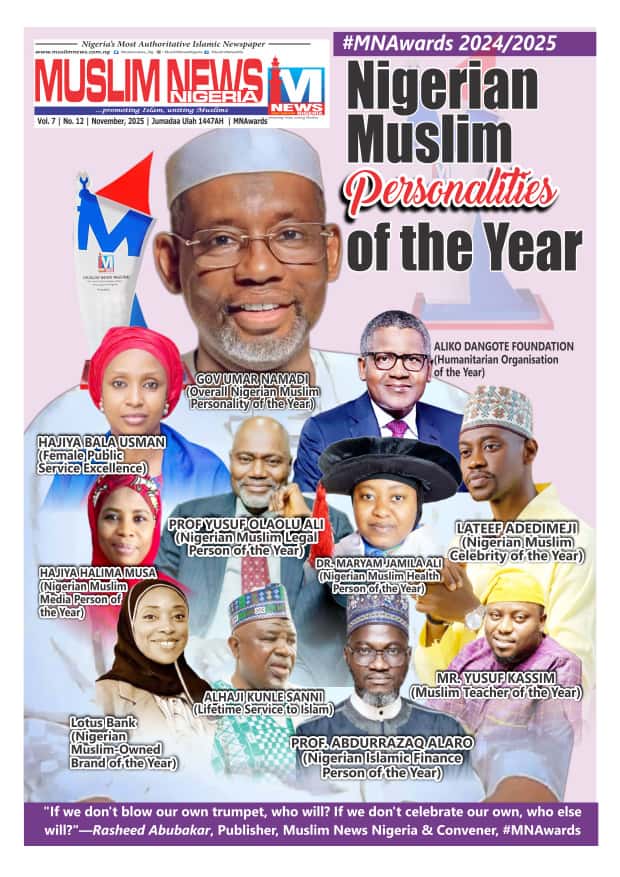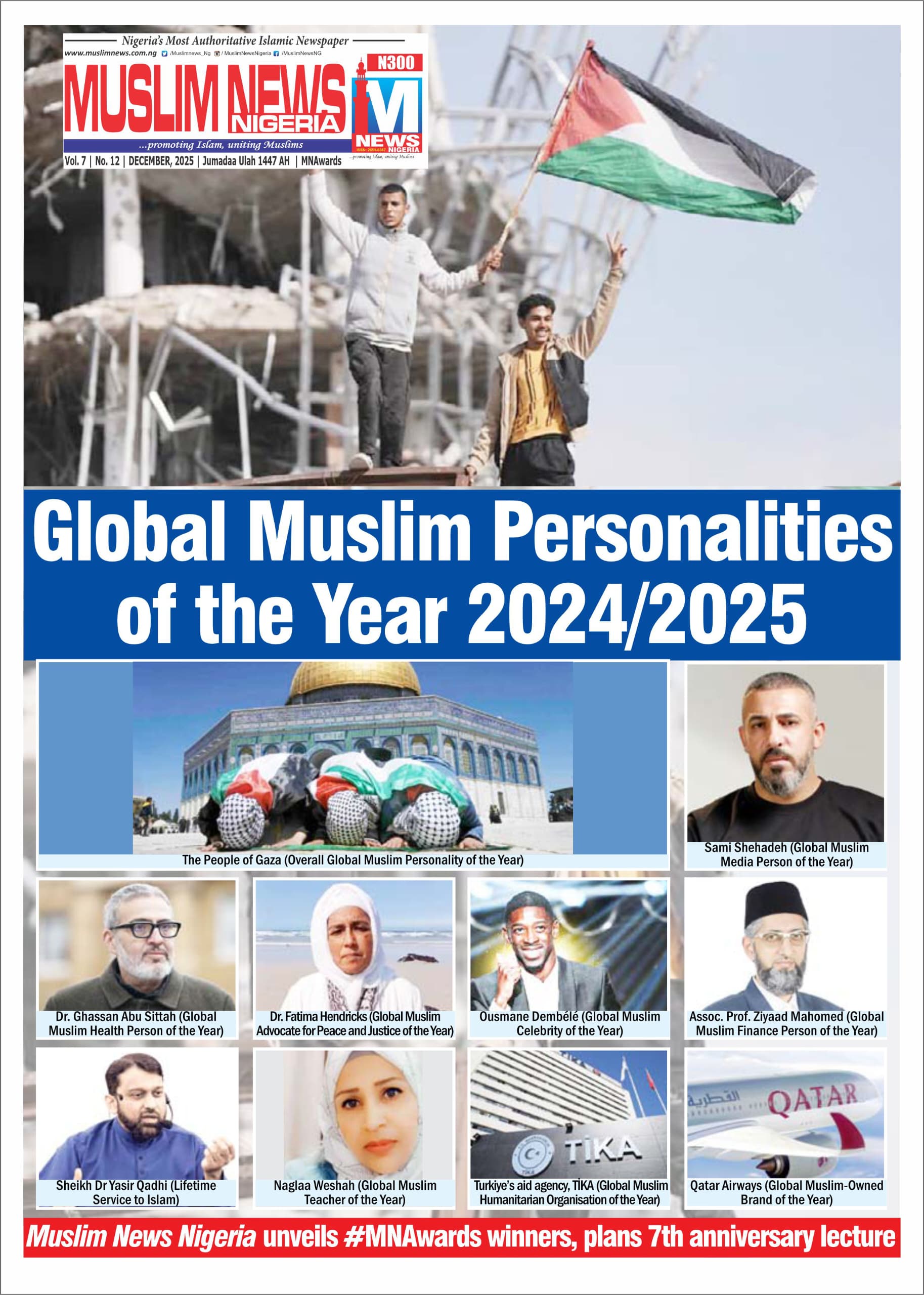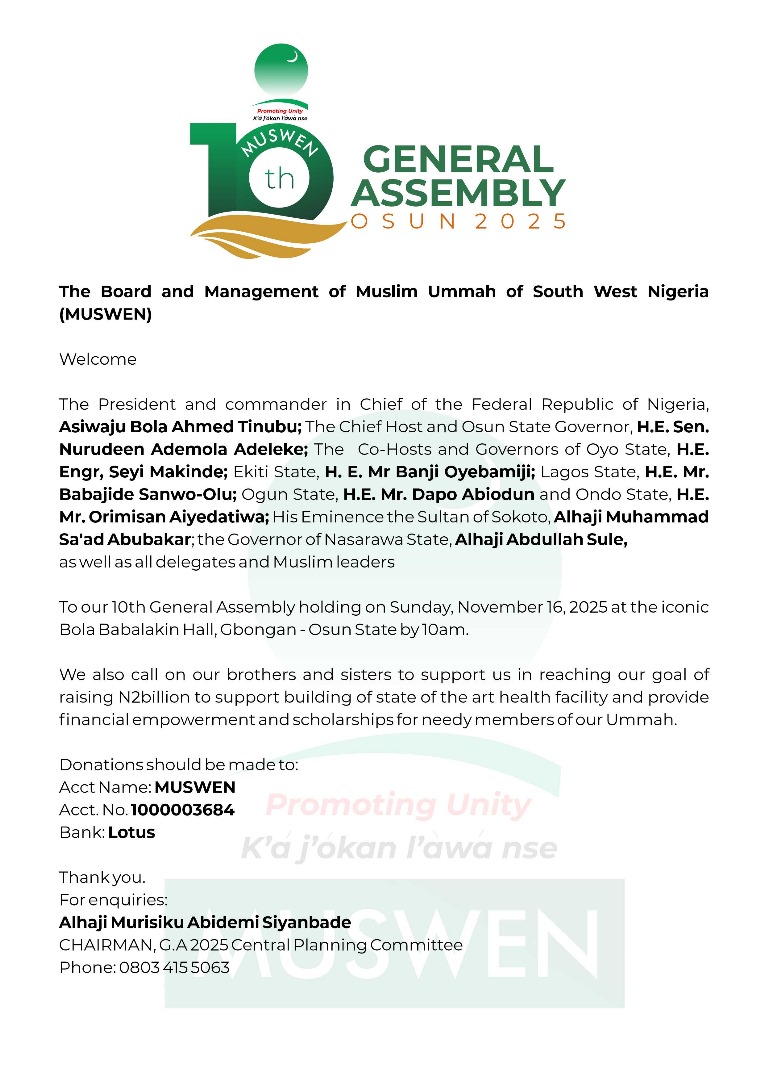* At IIFP annual stakeholders’ conference
Stakeholders have emphasized the need for more responsive regulation, product innovation, and greater public education to support the growth of Islamic finance industry in Nigeria.
The experts made the call on Wednesday at the 2025 annual Stakeholders Conference of the Institute of Islamic Finance Professionals (IIFP), themed: “Advancing Islamic Finance for Economic Resilience and Inclusive Growth.”
Muslim News gathered that the conference witnessed series of panel discussions which reinforced the urgent need for a more inclusive, adaptive, and innovative approach to regulation, education, and product development in Nigeria’s Islamic finance ecosystem.
Mr. Tajudeen Olusesi, Head of Business Development at Al-Hilal Takaful Nigeria Limited, who represented the Executive Director of Technical Operations, Hajia Muibat Jimoh, stressed the critical role of regulatory bodies in shaping the future of Islamic finance in Nigeria.
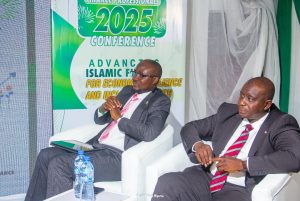
“On the regulatory framework and governance for Islamic finance in Nigeria, we need the regulators to do more,” he stated. “Globally, if we look at Islamic finance, we see that Nigeria’s regulatory authorities are not doing badly. However, we feel that there is still a number of innovative approaches that the regulators should consider in their operations.”
He pointed out that while the Central Bank of Nigeria (CBN), the National Insurance Commission (NAICOM), and the Securities and Exchange Commission (SEC) are each responsible for different segments—banking, insurance/takaaful, and capital markets respectively—there is a need for stronger synergy and more dynamic regulation.
“Islamic finance, to a Muslim, is a matter of faith. That is like the only option they have,” Olusesi explained, while speaking with Muslim News, on the sidelines of the Conference.

“A Muslim who is practising his religion will not like to go the conventional way to seek financial support because they know Islam prohibits ribah (interest). What is acceptable is the halal trade which comes with Islamic finance.”
He highlighted the early demand for Islamic financial products, such as takaful insurance and Islamic banking, which emerged before the regulatory frameworks were even in place. “People are moving to fintech now. But there is no aspect of the regulations for takaful talking about it. It means there is need for improvement in the regulations,” he noted.
Olusesi urged regulatory agencies to align their guidelines with the evolving needs of the market. “The regulators, NAICOM, CBN, SEC, are doing their bits. But again, there is a lot that they need to do in making sure that the emerging demands of Islamic finance institutions are met with prompt service delivery and innovation.”
Islamic finance products not charity – Business Development Analyst
On her part, Ms. Zainab Olaitan Sulaiman, PR Analyst and Business Development Analyst at Marble Capital Limited, who represented the Managing Director, Mr. Hakeem Oyewale, disclosed the societal relevance and ethical value of Islamic finance.
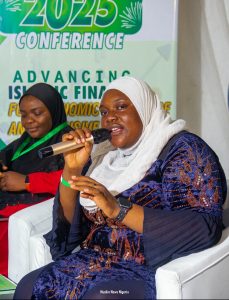
“The Islamic finance space is one of the spaces that still remains relevant in the industry,” she said, adding, “It is a very good one because it not only teaches us about our beliefs, but also helps us in our finances. It is a win-win situation.”
She continued: “Islamic finance gives us better chances and opportunities to better living as Muslims and as people in pursuit of a better life… It removes the aspect of riba (interest), hypocrisy, and others.”
Ms. Sulaiman also used the opportunity to clarify common misconceptions linking Islamic finance with charity. “Some people have the mentality of relating charity to business transactions. It is not a charity case. Business transactions, be it Islamic or non-Islamic, are not a charity. People are there to make profits and grow,” she said. “Let us separate our attitude of charity from business and associating everything Islamic to charity.”
She highlighted Marble Capital’s contributions to the market, particularly its pioneering ethical and Shari’ah-compliant commodities fund in Nigeria. “At Marble Capital, we give back to society. However, we also want to create that opportunity of better living for Muslims to be able to grow within the same space of their religion.”

Ms Sulaiman also stressed the importance of education and outreach. “I think one of the many things that have been done over time is holding webinars, putting out free courses just for people to be able to have access to the products. There are many organisations that have put out learning opportunities for people, but it also rests on us to expose ourselves to those opportunities and take advantage of them.”
She concluded with a call to action for industry players: “I will still encourage institutions to continue initiatives like the one the Muslim professionals have done. Other organisations should also create learning opportunities for people, especially those whom the market is actually impacting.”
Islamic finance ‘ll outpace conventional system: Prof Tajudeen Yusuf
Earlier in his welcome address, the host and founding President of the Institute, Prof. Tajudeen Olalekan Yusuf, asked Muslims to embrace and see the Islamic finance industry as their own, expressing confidence it will outpace the conventional finance system.
Prof. Yusuf said there would be teething challenges for the industry, but stakeholders should remain resilient and dogged.
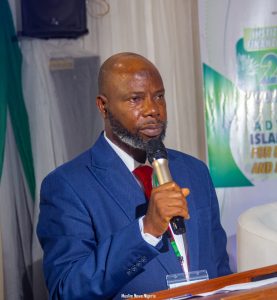
Shedding light on the purpose of the gathering, the founding President said it was to bring relevant stakeholders together to brainstorm, share experience, and visualise the future of the Islamic finance industry.
“We need to understand what we are doing right. What are those things we need to correct? How do we move forward? Like you know, there is strength in unity, dialoguing, and sharing of ideas,” he said. Read full story HERE

